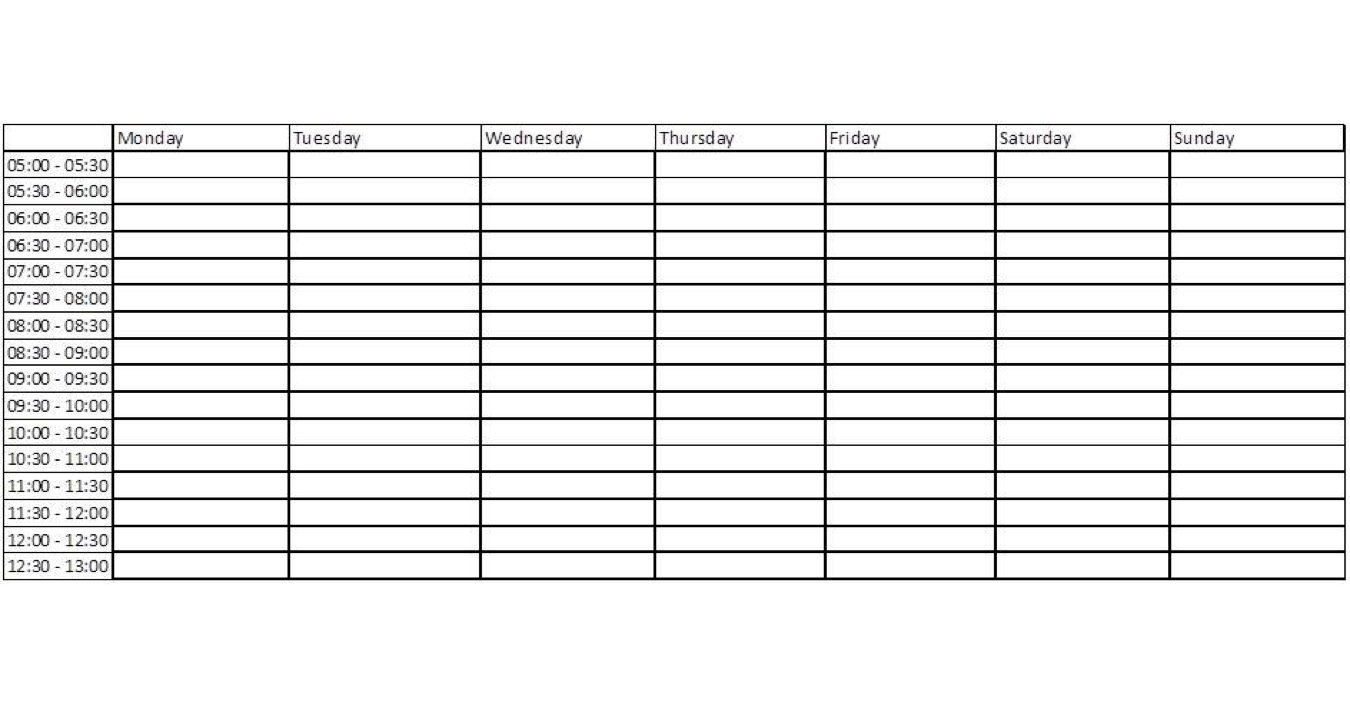Block It Out: How A Simple Time Log Can Restore Maximum Workday Productivity, Part 1
Who isn’t tired of feeling that unrelenting low dose of angst pulsing through their body? Sounds like you? Have you gotten so accustomed to the feeling of being “busy” and concerning yourself with “what’s next” that you’re not even aware of your own anxiety? Do you usually find yourself in a state of perpetually wondering what you were forgetting, or even worse, concerned that you’re not doing enough because “there’s just not enough time”?If this describes you, I challenge you to be curious for the remainder of this article. If you can read it without being judgmental, there just may be a glimmer of hope. You CAN feel less anxious and distraught. There IS enough time. And you ARE capable of more than you think. A calm and productive you is just waiting to emerge.
So, What’s The Secret Formula?
Here’s a little confession: I am the person described in the opening paragraph. Or at least I used to be that person. Like many of us, I was addicted to adrenaline. Yet now, I sit composing this article in a focused state of mind, peaceful except for the sound of a chainsaw which permeates the neighborhood. My secret? I’ve been keeping a time log for the last 12 months. NOW WAIT. Stay with me here. I can imagine that you think a time log is a huge commitment to squeeze into your already jam-packed routine. It’s overkill and would be a burden, right? That was my first reaction. But as it turns out, the time log has allowed me to remain more focused on my work, less anxious about my general workload, and satisfied with what I accomplish each day. This one tool has lead to greater personal productivity, engagement and energy than all others combined!
Tell Me More
Peak productivity occurs when we are fully focused on the task at hand. Sadly, in the modern workplace setting, this state of flow has become increasingly difficult to achieve. Our output is inhibited by distractions, and we are often saturated with interference both externally and internally. Utilizing a time log alleviates both of these mental pulls. It can serve as your scheduling device, your coach, and your work history at-a-glance. Furthermore, while acting as a defense against distraction, the log also allows you to block your time.
The most important 15-minute time block of the day is the planning block. Do it first thing in the morning, or as you’re closing down your work for the day. During those 15 minutes, look at your running To-Do list and prioritize. Then, carry the priorities over to your time log. As time management expert Laura Vanderkam would say, “Don’t prioritize your schedule; schedule your priorities.” During the course of a given day, you’ll know that all of your priorities are covered. This creates a safe space in your mind. The reward is maximized focus on the work at hand as the day progresses.
Gimmie A Break
Those persistent external distractions during your work day can be quite pesky. Something as simple as giving in to your personal "FOMO" can consistently draw you away from your work and into the internet abyss. One way to manage the temptation is to schedule break times into your time log (provided, of course, your line of work allows for such freedoms). This is your chance to get lost in Facebook or online news in 15 minute doses. Consider also blocking in 2 segments of email time, so you can catch up on responding to those non-urgent messages before they pile up. But when you need to be on email ‘high alert’, even a block of 10 minutes per hour will allow you to file ‘unimportant’ email, address urgent messages, and get back to that deep cognitive work that makes you so valuable to the company. Make a rule that you can only answer urgent or non-business email during these tiny breaks, keeping disciplined that email should be addressed only when you’ve carved out the time for it. PS: During the hour you block out for email, you can also buzz through returning those non-urgent messages like that aforementioned chainsaw through those trees.
Read Part 2 of my time log odyssey, and learn some sweet tips on the advanced art of time-plotting.



